AACR Timeline—At the Forefront of Cancer Science in the 21st Century: 2000-Present

2000
- Minorities in Cancer Research (MICR) is established to meet the professional needs and advance the careers of minority scientists.
- More than 5,000 abstracts are submitted to the Annual Meeting; attendance exceeds 12,000.
- The AACR Foundation for the Prevention and Cure of Cancer is formally launched.
2001
- AACR Journals Online first offers the full text of all AACR journals.
- Affiliate Membership, for health professionals working in support of cancer and biomedical research, and Student Membership, for high school students and undergraduates, are introduced.
- The Association launches its fifth journal, Molecular Cancer Therapeutics. Daniel D. Von Hoff, MD, is the founding editor.
- Membership categories are modified to allow international scientists to join as Active Members.
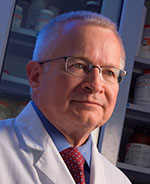
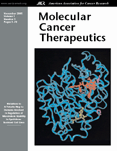
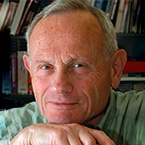
2002
- The inaugural AACR-Prevent Cancer Foundation Award for Excellence in Cancer Prevention Research is presented to Michael B. Sporn, MD. (In 2013, the award is renamed as the AACR Award for Outstanding Achievement in Cancer Prevention Research.)
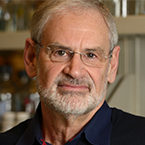
- The inaugural Kirk A. Landon-AACR Prize for Basic Cancer Research is presented to Robert N. Eisenman, PhD. (Landon Prizes are changed to INNOVATOR awards in 2009.)
- The first MICR Symposium is held: Is Race/Ethnicity a Meaningful Construct in Studies of Cancer Etiology and Treatment
- The inaugural Dorothy P. Landon-AACR Prize for Translational Cancer Research is presented to Elwood V. Jensen, PhD, and V. Craig Jordan, PhD. (Landon Prizes are changed to INNOVATOR awards in 2009.)

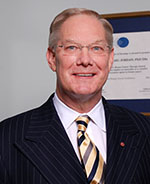
- The inaugural AACR International Conference on Frontiers in Cancer Prevention Research is held in October in Boston, Massachusetts.
- Cell Growth & Differentiation is relaunched as Molecular Cancer Research. Michael B. Kastan, MD, is the founding editor.

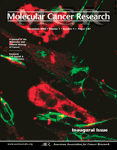
2003
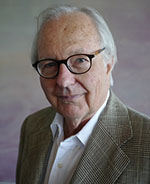
- Three days before the opening events in April, the AACR Annual Meeting is canceled because of the SARS outbreak in Toronto. The meeting is rescheduled for July in Washington, D.C.
- The inaugural AACR Distinguished Lecture is delivered by James E. Darnell, Jr., MD. (In 2013, the lectureship is renamed the AACR-Irving Weinstein Foundation Distinguished Lecture.)
- AACR membership surpasses 20,000.
2004

- The inaugural AACR Award for Lifetime Achievement in Cancer Research is presented to Emil Frei III, MD.
2005
- The Chemistry in Cancer Research Working Group is established.
2006

- CR Magazine, the AACR’s first consumer magazine, is launched. (In 2011, the magazine is relaunched as Cancer Today.)
- The inaugural AACR-Minorities in Cancer Research Jane Cooke Wright Memorial Lecture is delivered by Olufunmilayo I. Olopade, MD.
- The Tumor Microenvironment Working Group is established.
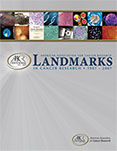
2007
- Landmarks in Cancer Research, a display and publication, is issued in honor of the AACR Centennial.
- The inaugural AACR Team Science Award is presented to the University of Michigan-Brigham and Women’s Hospital Team.
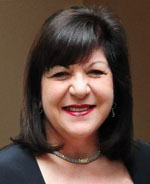
- The inaugural AACR Award for Leadership and Extraordinary Achievements in Cancer Research is presented to AACR CEO Margaret Foti, PhD, MD (hc). (In 2008, the award is renamed the Margaret Foti Award.)
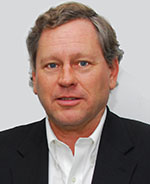
- The inaugural AACR-Princess Takamatsu Memorial Lecture is delivered by Webster K. Cavenee, PhD.
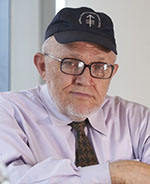
- The first AACR Conference on the Science of Cancer Health Disparities in Racial/Ethnic Minorities and the Medically Underserved is held in Atlanta, Georgia.
- The inaugural AACR Award for Outstanding Achievement in Chemistry in Cancer Research is presented to Samuel J. Danishefsky, PhD.
- The AACR opens its Office of Science Policy and Government Affairs in Washington, DC.
2008
- The AACR launches its sixth journal, Cancer Prevention Research. Scott Lippman, MD, is the founding editor.
- Stand Up To Cancer, a charitable program of the Entertainment Industry Foundation, holds its first fundraising telecast. The AACR is the scientific partner to SU2C.
- Stand Up To Cancer Innovative Research Teams (Dream Teams) are established.
- The AACR first collaborates with the Cancer Therapy & Research Center (CTRC) at UT Health Science Center San Antonio and Baylor College of Medicine to support the CTRC-AACR San Antonio Breast Cancer Symposium.
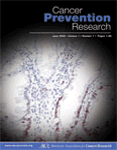
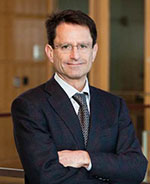
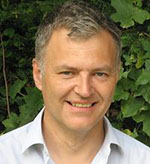
- The inaugural AACR Outstanding Investigator Award for Breast Cancer Research is presented to Douglas Easton, PhD, at the San Antonio Breast Cancer Symposium.
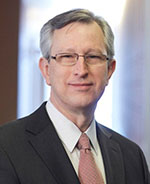
- The inaugural AACR Distinguished Lectureship in Breast Cancer Research is given by Joan Massagué, PhD, at the San Antonio Breast Cancer Symposium.
2009
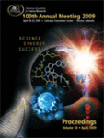
- The AACR celebrates its 100th Annual Meeting in Denver, Colorado, with an exhibit displaying the history of the meeting.
[View the display (PDF; 13 MB).] - AACR membership surpasses 30,000.
2010

- A video titled “It’s Our Time” reflects the accomplishments and possibilities of cancer research. The video receives four Telly awards; videos in subsequent years garner more awards.
- The second Stand Up To Cancer telecast is held on September 10.
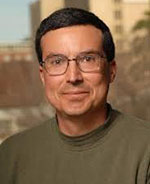
- The inaugural AACR Distinguished Lecture on the Science of Health Care Disparities is given by Charles M. Perou, PhD, at the Cancer Health Disparities meeting.
- The AACR is certified as a provider of Continuing Medical Education (CME).
- The Cancer Immunology Working Group is established.
2011
- The Association launches its seventh journal, Cancer Discovery. Lewis C. Cantley, PhD, and Jose Baselga, MD, PhD, are the founding editors.


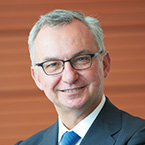
- The first AACR Cancer Progress Report is published.
- The Pediatric Cancer Working Group is established.
2012
- The third Stand Up To Cancer telecast is held on September 7.
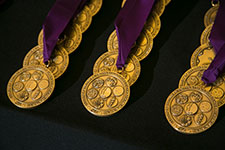
2013
- The inaugural class of Fellows of the AACR Academy is inducted.
- Cancer Policy Monitor is launched by the AACR Washington office.
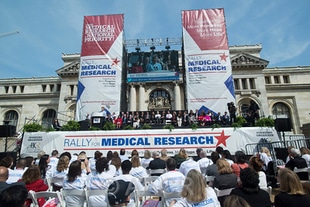
- The AACR partners with over 200 organizations and institutions to conduct the first Rally for Medical Research, April 8, Washington, D.C.
- [Watch a video of the Rally for Medical Research.]
- The Association launches its eighth journal, Cancer Immunology Research. Glenn Dranoff, MD, is the founding editor.
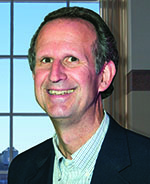
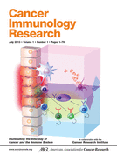
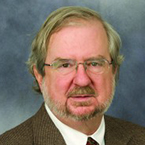
- The inaugural AACR-CRI Lloyd J. Old Award in Cancer Immunology is presented to James P. Allison, MD.
2014
- The AACR International Office – the organization’s first satellite office outside the United States opens in Shanghai, China. The International Office supports the launch of the inaugural New Horizons in Cancer Research Conference, held in Shanghai in October.
- Cancer Research Catalyst, the AACR blog, is launched.
- The inaugural Young Champion in Cancer Research Award is given to Elena Simon.
- A second international satellite office is opened in Toronto, Ontario, Canada.
- The fourth Stand Up To Cancer telecast is held on September 5.
2015
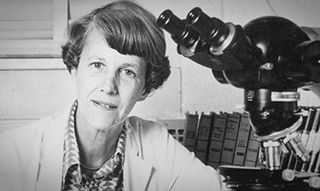
- The AACR supports production of the PBS series CANCER: THE EMPEROR OF ALL MALADIES. More than 40 current and former AACR members—including 17 Fellows of the AACR Academy—are among the 60 eminent scientists interviewed.
- Annual Meeting attendance sets a record of over 19,000.
- The AACR June L. Biedler Prize for Cancer Journalism is announced.
- The AACR is named the charity partner for the AACR Rock ‘n’ Roll Philadelphia Half Marathon.
- The AACR announces Project GENIE® (Genomics Evidence Neoplasia Information Exchange).
- The Radiation Science and Medicine Working Group is established.
- [For a summary of AACR programs and initiatives in 2015, read the AACR Annual Report.]
2016
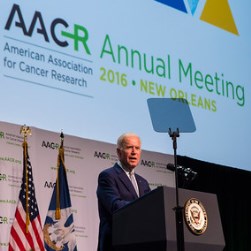
- On January 8, AACR President Jose Baselga leads a delegation of 15 AACR members to meet with Vice President Joe Biden’s senior staff to discuss the state of cancer research. Four days later, during his State of the Union Address, President Obama announced the launch of a National Cancer Moonshot Initiative led by Vice President Biden.
- Vice President Biden addresses nearly 4,000 attendees during the AACR Annual Meeting 2016 to thank the cancer research community for devoting their lives to cancer research and to encourage them to share their ideas to more quickly accelerate progress against cancer.
- AACR journals commemorate 100 years of scientific publishing and the 75th anniversary of Cancer Research with a special walk-through display and publication at the Annual Meeting.
- AACR International launches the inaugural African Cancer Researchers Travel Awards to offset the travel expenses for five cancer scientists to attend the AACR Annual Meeting 2016.
- The fifth Stand Up To Cancer telecast is held on September 9.
- [For a summary of AACR programs and initiatives in 2016, read the AACR Annual Report.]
2017
- Thirteen months after its launch, AACR Project GENIE makes public its first data release. The dataset contains nearly 19,000 de-identified genomic records and the associated limited clinical data and covers 59 major cancer types.
- Joe Biden returns to the AACR Annual Meeting to outline the Cancer Moonshot progress made to date and to thank the attendees for their efforts to accelerate that progress.
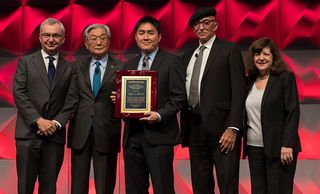
- The inaugural AACR-Waun Ki Hong Award for Outstanding Achievement in Cancer Research is presented to Roger S. Lo, MD, PhD. The award was established in honor of Waun Ki Hong, MD, FAACR, an AACR Past President and Fellow of the AACR Academy.
- The AACR hosts its first-ever conferences on the African and South American continents. New Frontiers in Cancer Research was held in Cape Town, South Africa, in January, and the AACR International Conference on Translational Cancer Medicine was held in Sao Paulo, Brazil, in May.
- The AACR is named the title partner for the AACR Philadelphia Marathon.
- [For a summary of AACR programs and initiatives in 2017, read the AACR Annual Report.]
2018

- At the Annual Meeting, the AACR and Cancer Research UK (CRUK) announced a new international alliance aimed toward accelerating the pace of progress against cancer.
- The AACR Academy establishes a governance structure to formalize its advisory and advocacy roles within the organization. Judy E. Garber, MD, MPH, is elected the first president of the Academy.
- The AACR partners with the organizers of the International Conference on Malignant Lymphoma (ICML)—held semiannually in Lugano, Switzerland, since 1981—to bring a version of this meeting to the United States. In June, the inaugural AACR International Meeting on “Advances in Malignant Lymphoma” was held in Boston.
- [For a summary of AACR programs and initiatives in 2018, read the AACR Annual Report.]
2019
- For the first time, the AACR Annual Meeting is expanded to a sixth day to accomodate the comprehensive educational program.
- AACR Project GENIE entered into a major research collaboration with a coalition of pharmaceutical companies that will accelerate the rate of clinical data collection and advance precision oncology to benefit cancer patients.
- The AACR publishes the first paper for its ninth journal, Blood Cancer Discovery. Riccardo Dalla-Favera, MD, FAACR, and Kenneth C. Anderson, MD, FAACR, are the founding editors.
- [For a summary of AACR programs and initiatives in 2019, read the AACR Annual Report.]
2020
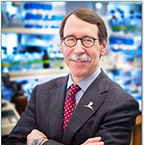
- Due to the rapid escalation of the COVID-19 pandemic, the AACR Board of Directors made the decision to cancel the in-person AACR Annual Meeting.
- The AACR held its first-ever virtual Annual Meeting over two weeks, April 27-28 and June 22-24. More than 74,000 registrants from 127 countries participated in the meeting.
- The inaugural AACR-St. Baldrick’s Foundation Award for Outstanding Achievement in Pediatric Cancer Research is presented to James R. Downing, MD.
- The AACR Board of Directors created a COVID-19 and Cancer Task Force. Chaired by AACR President Antoni Ribas, MD, PhD, FAACR, the task force was charged with recommending scientific and policy priorities for COVID-19 and cancer; evaluating COVID-related projects for potential AACR involvement; and developing new AACR initiatives to address the pandemic. The task force organized a virtual conference on COVID-19 and Cancer, July 20-22, which featured a keynote address from NIAID director Anthony Fauci, MD.
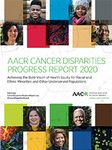
- The AACR releases its inaugural Cancer Disparities Progress Report. The report highlights areas of progress in addressing the challenge of cancer health disparities and emphasizes the need for continued research and increased collaboration among stakeholders in order to achieve the bold vision of health equity.
- [For a summary of AACR programs and initiatives in 2020, read the AACR Annual Report.]
2021
- The second virtual Annual Meeting was held over two weeks, April 10-15 and May 17-21.
- The AACR launches Cancer Research Communications, the association’s first open-access journal and the tenth journal in its scientific publishing portfolio. Elaine R. Mardis, PhD, FAACR, and Lillian L. Siu, MD, FAACR, are the founding editors.
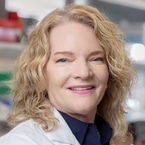

- AACR Project GENIE® announced two data releases, increasing the size of this international pancancer registry to nearly 121,000 sequenced tumors from more than 111,000 patients—including data that were included as part of a successful regulatory submission to the FDA that led to the approval of the first-ever KRAS inhibitor, sotorasib.
- The Cancer Evolution Working Group is established.
- The Cancer Prevention Working Group is established.
- AACR membership surpasses 50,000.
- [For a summary of AACR programs and initiatives in 2021, read the AACR Annual Report.]
2022
- The AACR recognized its 115th anniversary with a special event at the National Portrait Gallery in Washington, D.C., featuring luminaries from across the cancer research community.

- The AACR organized two historic meetings encompassing a total of more than 80 of the nation’s cancer center directors to discuss more effective ways of collaborating to advance cancer research and patient care.
- The AACR Report on the Impact of COVID-19 on Cancer Research and Patient Care is published.
- [For a summary of AACR programs and initiatives in 2022, read the AACR Annual Impact Report.]
2023
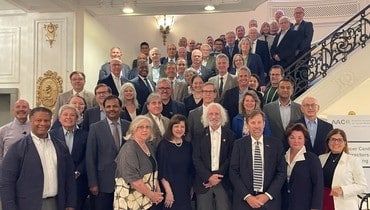
- The AACR Cancer Centers Alliance is launched under the leadership of AACR Past President (2021–2022) David A. Tuveson, MD, PhD, FAACR. The Alliance brings together nearly 100 of the nation’s cancer centers with the goal of markedly expanding their scope and impact for the benefit of all patients with cancer.
- Pfizer Inc. announced that it had chosen to donate the rights of its royalties from the sale of Bavencio® (avelumab) in the United States to the AACR. The AACR was selected because of its sustained innovation in cancer research, and the donation was intended to advance cutting-edge science and accelerate the development of lifesaving discoveries against cancer.
- [For a summary of AACR programs and initiatives in 2023, read the AACR Annual Impact Report.]
2024
- The Hematologic Malignancies Working Group is established.
- The Pathology in Cancer Research Working Group is established.
- The AACR launches a comprehensive program to eliminate membership dues for all researchers located in countries that are building research capacities
- [For a summary of AACR programs and initiatives in 2024, read the AACR Annual Impact Report.]